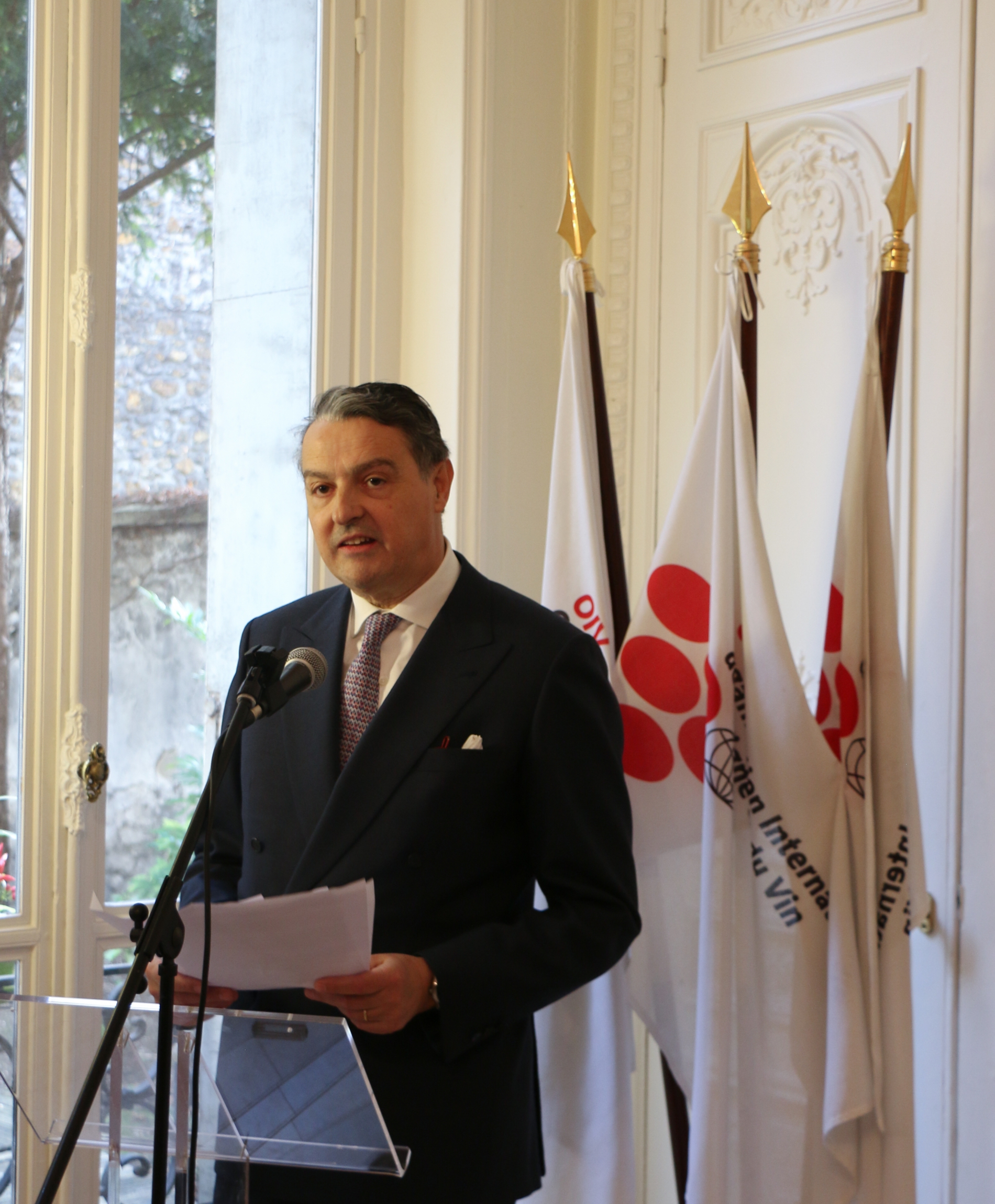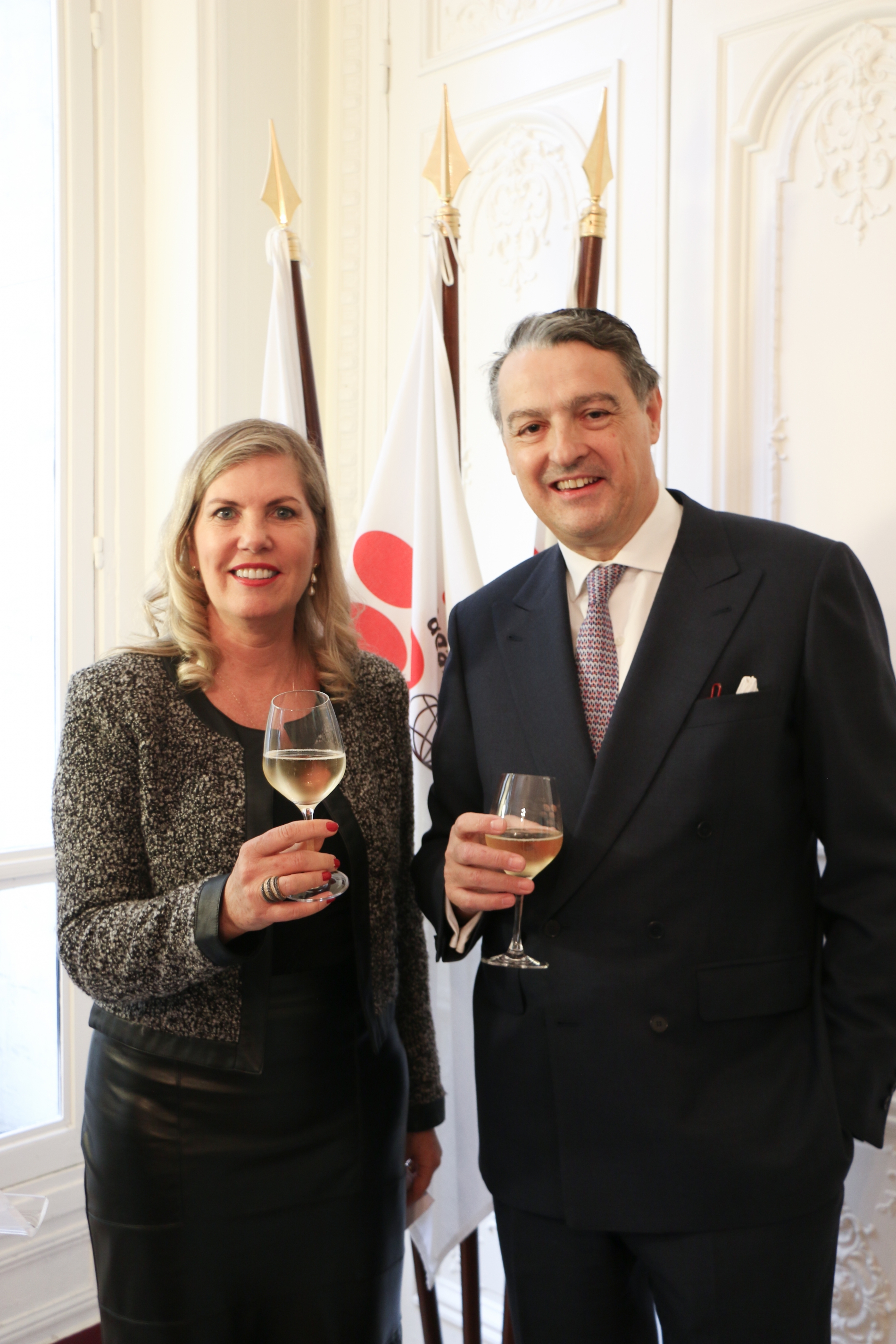The ceremony, which coincided with the commencement of his duties, represents ‘a new phase’, with Pau Roca feeling ‘responsible for the whole team, and each of the countries in the OIV’.
In his address, Pau Roca emphasised the role of new technologies and new modes of communication, which in his view ‘are moving us forward at a rate of constant acceleration’. In this regard, ‘neither the wine sector nor the Organisation itself can stand by and witness these phenomena without becoming deeply involved and integrating these innovations and new tools’. For the Director General of the OIV, ‘the universalised use of these technologies will radically change the economy and legal relations. New ways to encrypt, store and transfer information, to validate authority, and to secure and distribute databases and metadata, will dramatically change our environment.’

The OIV Strategic Plan
With over a 100 million hectolitres in wine exports, representing a value of more than EUR 30 billion, the proportion of cross-border trade in relation to production is a key success factor for the wine sector. On this point, Pau Roca reiterated the OIV’s mission to reinforce and maintain the balance between the consumer and producer markets. To this end, the Organisation should guarantee that ‘regulations never become an excuse to erect barriers and generate confrontation; rather, they should serve consumers and the interests of producers in a balanced and shared value chain, while ensuring the preservation of pluralism and diversity’.
The OIV’s future five-year plan must address the challenges of the sector. In 2019, the Organisation will develop its next Strategic Plan. Pau Roca wishes to propose to the OIV Member States a strategy focused on a number of priority areas, such as:
- to contribute to efforts directed at ensuring not only the environmental sustainability, but also the social, economic and cultural sustainability of our sector,
- to stay informed and to prepare for adaptation to the digitisation of the sector and its information systems, at an appropriate pace and identifying all the processes that are likely to change,
- to offer to OIV Member States a service that ensures the economic development of production and trade by providing good regulatory and administrative practices.
Finally, the Director General of the OIV invited all governments to form their delegations with highly competent people to participate in the expert groups at the upcoming April meetings, thereby actively participating in the sharing of collective expertise that constitutes the foundation of the OIV.
The role of women in the wine sector
OIV President Regina Vanderlinde also expressed her desire to move forward in 2019 with the dossiers currently being reviewed by the OIV, and was delighted to be the third consecutive woman to be elected within the Organisation: ‘I believe that my position entrusts me with the duty of representing women in a largely male-dominated industry. At the last OIV Congress, held in Uruguay, I received many words of thanks and appreciation from young female students and women in the sector.’ She added, ‘I am proud to be the spokesperson of the OIV in promoting the presence of women in this sector.’
42nd World Congress of Vine and Wine
The year 2019 will also see the OIV World Congress of Vine and Wine and General Assembly being held in Geneva, Switzerland, from 15 to 19 July 2019. Preservation and innovation will be the watchwords of the next Congress, which is an annual opportunity to meet viticulture experts from all over the world. This year the Congress will close with the Fête des Vignerons winegrowers’ festival in Vevey, a unique event recognised on UNESCO’s List of the Intangible Cultural Heritage and held every 20 years.
